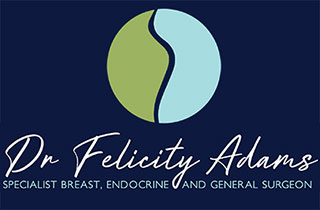Your Surgery
After Dr Adams has discussed the need for and consented you for surgery, there is a process her team will guide you through. We understand this can be a nerve racking time and aim to make this as smooth as possible.
On the day of your consult (where possible) an operation date can be jointly decided. Her team will assist with the booking of any associated tests prior to or on the day of surgery if required.
Admission Forms
You will be asked to complete admission forms for the hospital. These are preferably done online via the following link
Noosa Hospital Online Admission
Alternatively Dr Adams staff will supply you with a paper version for you to complete and return. This should be done as soon as possible or at least one week prior to your planned surgery. Your surgery booking will not proceed without completion of these forms.
Pre-Admission Clinic
After booking in for your surgery with Dr Adams you may be contacted by Noosa Hospital and asked to attend a preadmission clinic. This depends on the time interval between booking and having your procedure, the complexity of your surgery, your age and other health problems. During this visit a specialist nurse will discuss your surgery, preoperative preparation and expectations for discharge. Alternatively this discussion sometimes is done over the telephone.
Pre-Admission nurses will also arrange other routine preoperative tests such as bloods, ECG, CXR if required. If you are having a colonoscopy your bowel preparation will be provided during this visit. For more information about the preadmission clinic read here : https://www.noosahospital.com.au/For-Patients/Pre-Admission
Arrival and Fasting Times
Fasting is required before elective surgery for 6 hours. A sip of water for essential medicine is allowed.
For endoscopy you must not eat for drink for 6 hours prior, EXCEPT where you have been directed to consume bowel preparation fluid in this time window.
A nurse from Noosa Hospital will contact you on the day prior to your surgery with you admission and fasting times.
Medications
Most prescription medications should be continued right up until the morning of your procedure and can be consumed with a small sip of water even in your fasting period.
All natural medications and supplements should be stopped one week prior to surgery as some of these thin the blood and cause bleeding. Specific drugs are listed below, but it is safest to stop all supplements as some of their properties are unknown:
- Fish oil
- Omega 3
- Vitamin E
- Ginko
- Evening primrose oil
- Tumeric
- Garlic, ginger, cayenne pepper
Medications which thin the blood usually need to be stopped for elective surgery. Please discuss this with Dr Adams prior to cessation as sometimes alternatives need to be used during this period.
- Warfarin
- Clopidogrel (Plavix/Iscover)
- Assasantin
- Ticagrelor (Brilinta)
- Dabigatran (Pradaxa)
- Rivaroxaban (Xaralto)
- Apixaban (Elliquis)
- Anti-inflammatory drugs – often taken for joint pain or pain relief
- Ibuprofen – Brufen, Neurofen, Advil, Neuromol
- Diclofenac (Voltaren)
- Meloxicam (Mobic)
- Celecoxib (Celebrex)
- Piroxicam (Mobilis)
- Indomethacin (Indocid)
- Naproxen (Naprogesic)
Low dose aspirin (Astrix/Cartia) – can usually be continued depending on the reason it is taken and the type of procedure you are having, please discuss this with Dr Adams
Fees
For private patients undergoing surgery, there are three major components of fees payable to different parties.
Dr Adams fee:
On the day of booking for your surgery Dr Adams practice manager will provide you with a written fee estimate, the item numbers for your surgery and the estimated rebate from your health fund.
The appropriate item number is determined during your initial consult, and thereforenfee estimates can not be provided prior to this.
The anaesthetists’ fee:
When an anaesthetist is required you will be provided with their details so that you can contact them for a quote.
Hospital Fees:
For insured patients this relates to your excess and any co-payments on your hospital insurance policy. If you are unsure if you have an excess or if you are covered you should contact your insurer.
Other costs:
Other fees not mentioned above include the surgical assistant (where required), pathology and imaging which may be covered by your health fund depending on your insurer.


